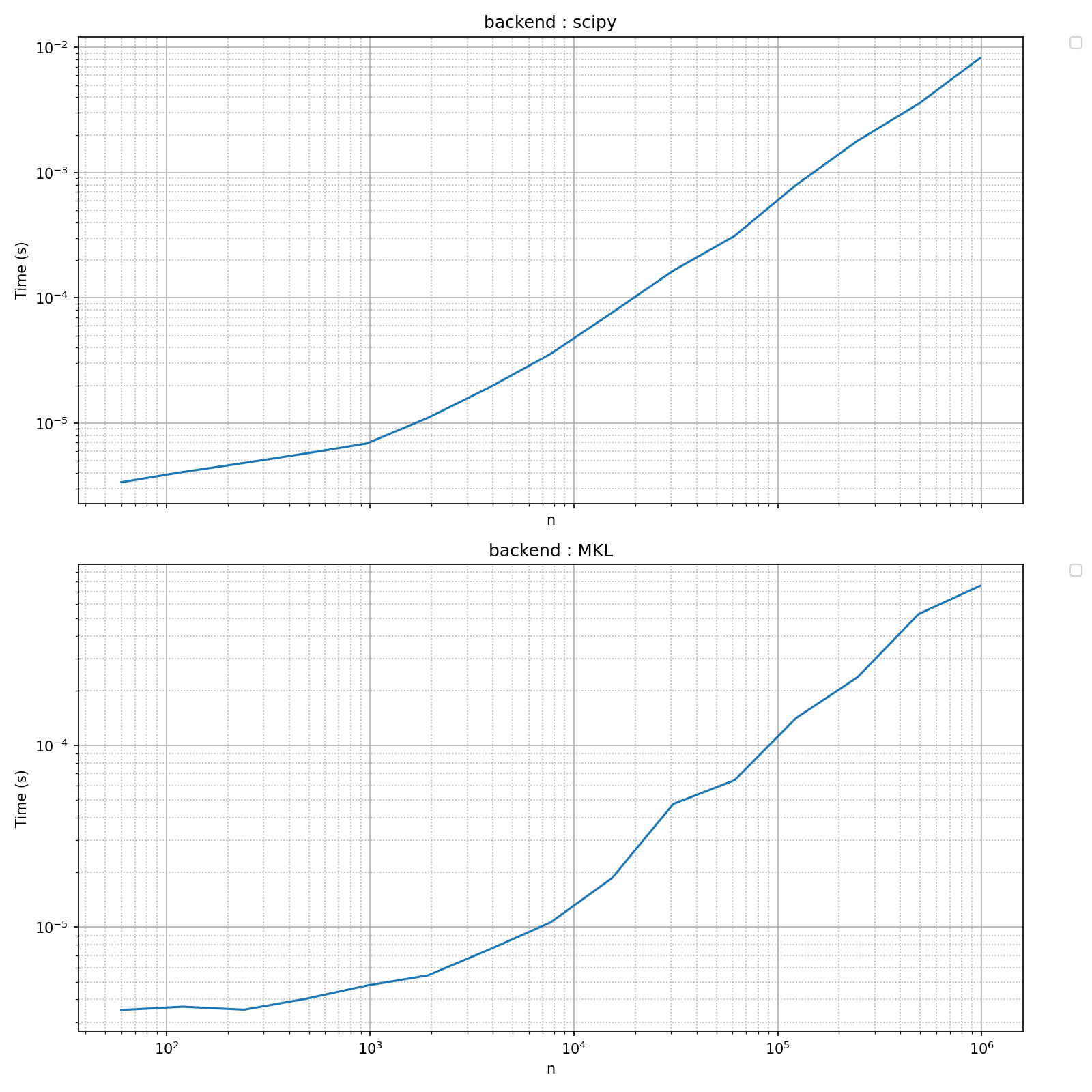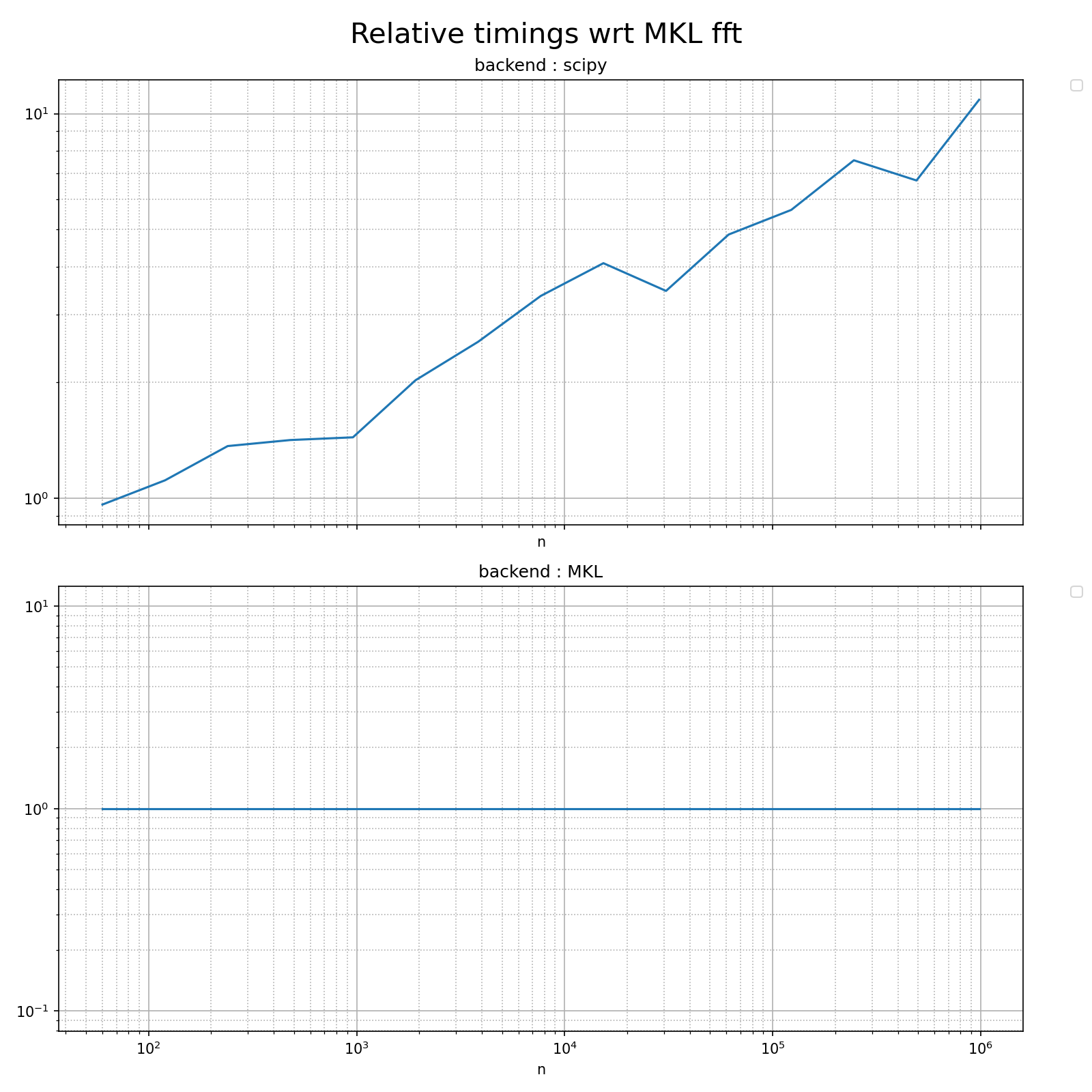Note
Go to the end to download the full example code.
Benchmark of FFT implementations available as scipy backends#
This benchmark compares execution times of several FFT functions using different scipy backends. The plots give the measured execution time of the FFT as a function of the input length. The input length is of the form 3 * 5 * 2**i, so as to favor powers of 2 and small divisors.
def fft(x):
scipy.fft.fft(x)
def rfft(x):
scipy.fft.rfft(x)
def dct_I(x):
N = x.shape[0]
n = N // 2 + 1
scipy.fft.dct(x[:n],1)
def dst_I(x):
N = x.shape[0]
n = N // 2 - 1
scipy.fft.dst(x[:n],1)
def dct_III(x):
N = x.shape[0]
n = N // 4
scipy.fft.dct(x[:n],3)
def dst_III(x):
N = x.shape[0]
n = N // 4
scipy.fft.dst(x[:n],3)
all_args = {
'n' : np.array([4*3*5 * 2**n for n in range(15)]) ,
'backend' : [backend_name for backend_name in all_backends] ,
}
all_funs = [
# fft ,
rfft ,
# dct_I ,
# dst_I ,
# dct_III ,
# dst_III ,
]
n_repeat = 10
all_times = pyquickbench.run_benchmark(
all_args ,
all_funs ,
setup = setup ,
n_repeat = n_repeat ,
filename = timings_filename ,
title = 'Absolute timings' ,
)
plot_intent = {
'n' : 'points' ,
'backend' : 'subplot_grid_y',
}
pyquickbench.plot_benchmark(
all_times ,
all_args ,
all_funs ,
show = True ,
plot_intent = plot_intent ,
)

relative_to_val = {
'backend' : 'MKL' ,
pyquickbench.fun_ax_name : "rfft" ,
}
pyquickbench.plot_benchmark(
all_times ,
all_args ,
all_funs ,
show = True ,
plot_intent = plot_intent ,
relative_to_val = relative_to_val ,
title = 'Relative timings wrt MKL fft' ,
)
